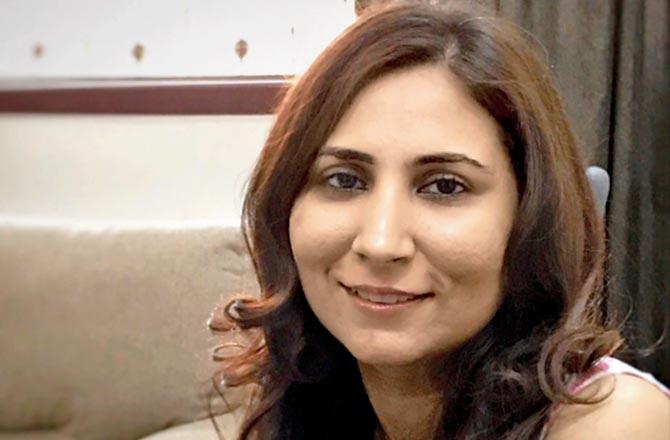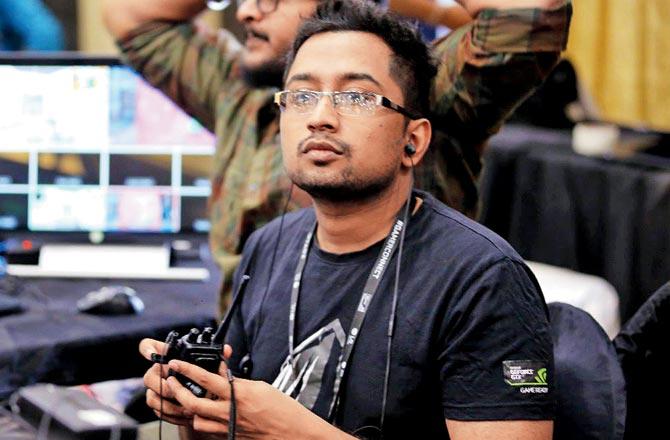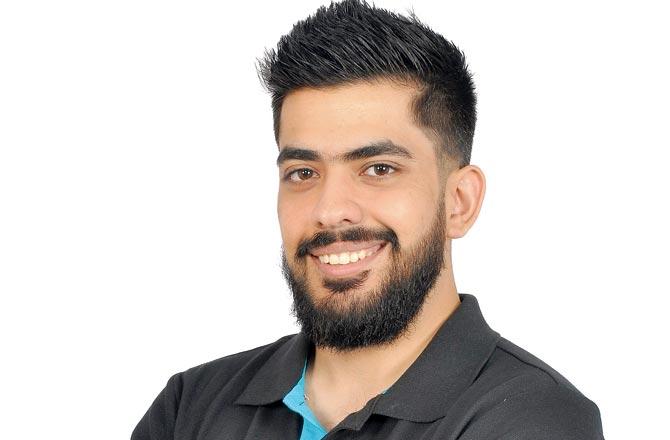As WHO puts gaming addiction in the mental health disorder list, a psychologist examines the passion of six gamers

Jaymie Vaz
Though last week, the World Health Organisation (WHO) included addiction to video games in its latest list of mental health diseases, not many are convinced by the tools of research used to study gaming as an addiction. While American Psychological Association’s Media Psychology and Technology division released a policy statement soon after, opposing WHO’s decision and describing the criteria used to determine the addiction as “muddled and unclear”, city psychologists have expressed similar concerns.
ADVERTISEMENT

“When we use strong labels like gaming disorder, we are not treating the real concern, but only addressing the symptom,” says Mumbai-based clinical psychologist Sonali Gupta. “Excessive gaming is a symptom that’s representative of a deeper problem. For instance, someone who lacks social skills, and has self-esteem issues, and spends more time gaming to tide over these problems. If we use labels like addiction, we would fail to understand the source of it,” she explains. Even as gamers and health practitioners alike debate the grey areas surrounding the world’s newest mental health illness, we invited Gupta to examine six heavily-invested gamers and give us their health report card.
‘Gaming is more than a hobby’
Jaymie Vaz, 30, Game developer, Pune
I consider myself a gaming addict, because I get my fix from it. It is actually a big stress-reliever and makes me happy. If a game has an engaging storyline and great characters, I am immediately hooked. There have been times when I have played a game for 10 hours at a stretch for almost a week, until I completed it. In fact, during my college days, I would play till late into the night, and barely managed to catch any sleep. The good thing is that I am not highly dependent on it, and though I play for two to three hours daily, I can walk out of it, when I feel I am overdoing it. Also, since I am a game developer, gaming is not just a hobby, but also what I am involved in professionally and socially.
Gupta says: This is a brilliant example of how you make a hobby an active, social experience. What is interesting is that she is aware of her gaming habits. The fact that she can now walk out of it as and when, proves that she is on the right path. Addicts always want more of something. Playing a game makes her happy, so she is surely not addicted.
‘Can juggle gaming with everyday activities’
Lakshya Shrivastava, 19, Intern with a media house, Mumbai

I adjust my life around my gaming activity. Since I am expected to be in office at around 9 am, I wake up by 6.30, and spend an hour or more, playing on my phone. Sometimes, if I am between a good game, and I have a task to complete, I have to convince myself to not play. My evenings are mostly spent on the phone. I can easily multi-task, so I eat my dinner and play simultaneously. Most of my friends also play the same game as me. So, most of my interaction with them happens while we are playing.
Gupta says: What’s most worrisome about Lakshya is that he is wired all the time. This could lead to fatigue. He needs to learn to control his urge and also create a log of activities he is unable to do because of his habit. It’s likely that his social interaction at work is affected due to this.
‘Felt obligated to live stream’
Ratul Satish, 23, Freelancer and streamer, Bengaluru

Last year, after I started live streaming my gameplay, I started becoming slightly obsessed with it. Live streaming allows others to see your experience of playing a game. Initially, I felt obligated to stream for my audience, and would end up spending three to four hours, thrice a week. Now, it’s only during weekends that I go on a gaming binge, playing for around 10 hours. But I do take breaks.
Gupta says: Ratul does mention that at one point, he felt obligated to live stream for his audience. I’d like to know what emotional need is being met from live streaming, that makes him feel that way. Also, though he mentions about taking adequate breaks when he goes on a gaming binge during the weekends, does he also take some time out for an exercise routine or physical activity. He is young, so this is something he needs to think about, very seriously.
‘Can play 4-5 matches at a stretch’
Anshuman Evan Tuladhar, 18, Student, New Delhi

On most days, when I wake up, I pick up my mobile phone to play. I can play at least four to five matches at a stretch, each lasting around 40 minutes. I go back to playing again after midnight and sometimes, continue till around 5 am. When not playing games, I am either watching anime, or playing the guitar. I am not an outgoing person, so gaming is really my comfort space.
Gupta says: He appears to be operating as an island. My concern here is — does he have time for others? I am keen to know about his social life, and would like to know more about the social support he enjoys.
‘It’s a good stress buster’
Ishaan Arya, 27, Marketing consultant, Bengaluru

Gaming has always been a huge part of my life. I started when I was 5 years old, playing games that helped me improve my Maths and English, before going on to more violent games. Today, I work as a marketing consultant for a gaming company, so everything I do, revolves around this world. Yes, I spend an average of six to seven hours playing games and this happens mostly after work. Yet, I wouldn’t consider myself an addict. I have an active social life and a girlfriend, I also have a job, and pay my bills, so what I do in my free time shouldn’t be a cause for concern. It’s a stress buster, and a good one at that.
Gupta says: I want to know how Ishaan manages his time. It’s nice to know that he can manage his professional and personal life while gaming for six to seven hours daily. But, I am curious about how he finds that balance. Is his sleep pattern being affected, because he has crunched in too many things for himself.
‘Manage three hours a day’
Farhaan Kapadia, 30, Editor of a tech news and reviews website, Mumbai

While I enjoy gaming and used to play long hours at one point, marriage and work make it difficult. I still manage around two to three hours on most days. And, when I do, I completely disconnect from everything around me. I think gaming is the perfect and most harmless way to escape the real world. I won’t trade it for
anything else.
Gupta says: I don’t see a problem in Farhan’s narrative. Like Jaymie, he is aware about his gaming habits, and also manages to make time for his partner and work.
Catch up on all the latest Mumbai news, crime news, current affairs, and also a complete guide on Mumbai from food to things to do and events across the city here. Also download the new mid-day Android and iOS apps to get latest updates
 Subscribe today by clicking the link and stay updated with the latest news!" Click here!
Subscribe today by clicking the link and stay updated with the latest news!" Click here!






